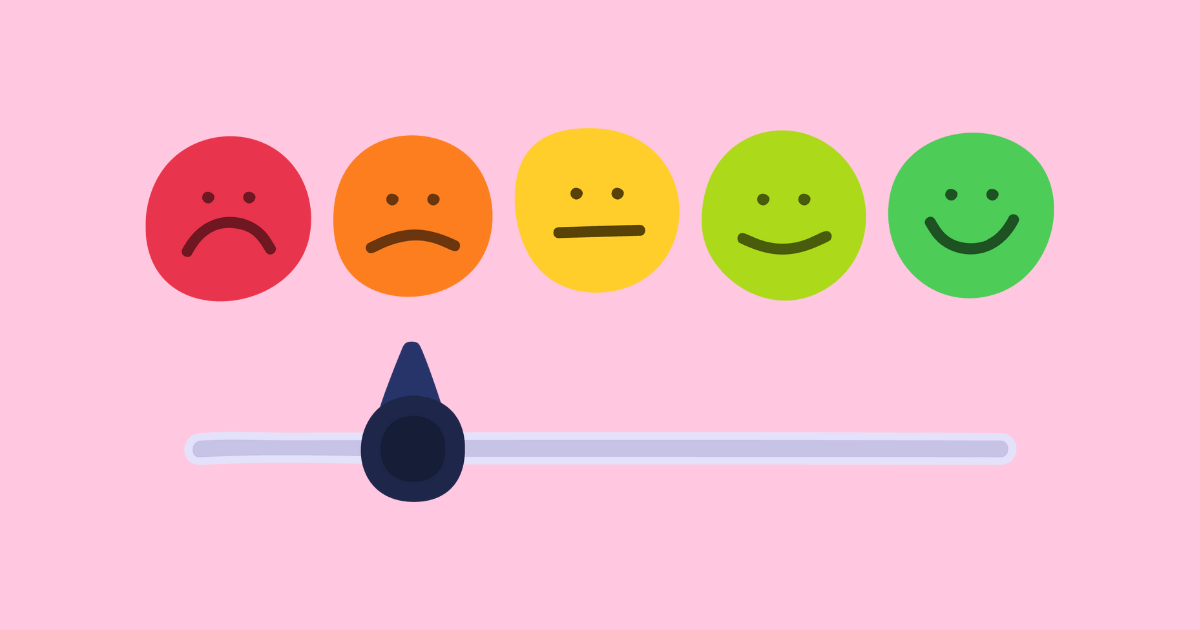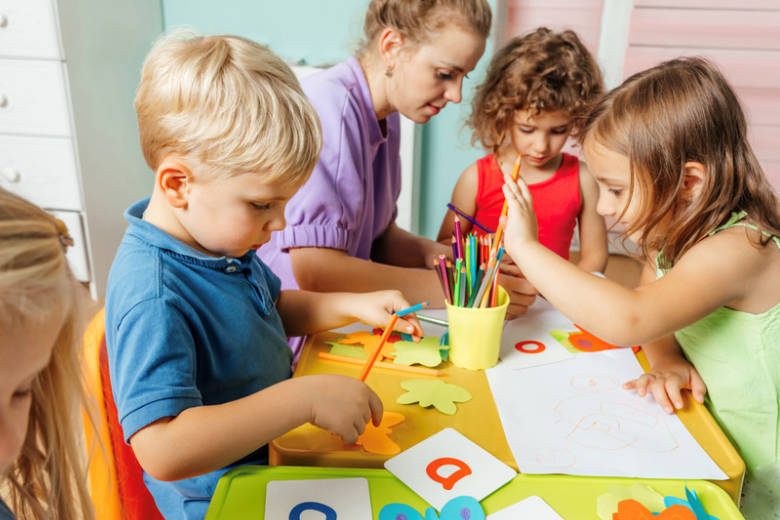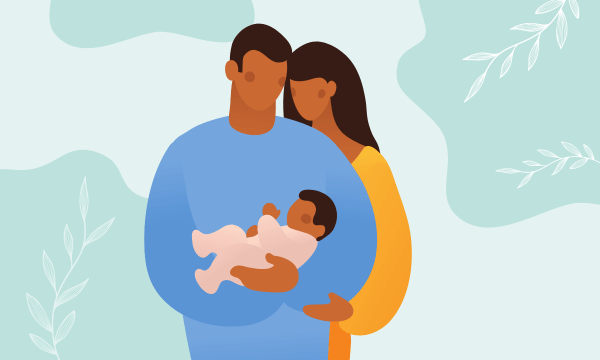We have all heard about (and experienced) toddler tantrums and meltdowns. It can feel like you have tried everything in your toolkit to calm them down. We spoke to Dr Charlotte Dunster-Page, Clinical Psychologist, to collate information, advice, and PSED EYFS activities for you to try.
Dr Charlotte Dunster-Page is a Clinical Psychologist. She works for the NHS alongside supporting families with parent-infant relationships through her company, Born to Bond. Dr Dunster-Page delves deep into what impacts good personal, social and emotional development in the early years, how to support the child best (from a nursery practitioner’s perspective) and some PSED EYFS activities to implement.
What can impact PSED EYFS progression?
“Humans are designed to survive. Our basic needs are prioritised to allow us to survive and then develop.” Dr Dunster-Page explains.
If a child is in survival mode and their basic needs are unmet, EYFS personal, social and emotional development gets subconsciously pushed down the priority list. Several childhood development theorists are outdated; one that is an oldie but goodie is Maslow’s Hierarchy of Needs.
Maslow recognises that basic needs (like safety, security and belonging) must be secure before a child can self-actualise and experience success.
So, what can impact PSED EYFS growth, and is it the same for every child?
In short, no. Nothing will be experienced in the exact same way, as we all have different genetic makeup, personalities and thresholds. But, there are common influencers for PSED EYFS progress.
- Childhood trauma
- Stress (single event and toxic stress)
- Adverse Childhood Experiences (ACEs)
- Neurodiversity
Stressful events and the impact on PSED EYFS progress.
Of course, what one child may deem stressful, another may not. It is important to remember that although we can try to over-simplify PSED EYFS progress for our understanding and application, it is incredibly complex and can be different for each child.
With that said, Stress is divided into two main groups: single-stress events and toxic stress. A single-stress event (like the death of a pet or a house move) can impact the personal social and emotional development of a child. The severity of the impact relies on the golden thread for good PSED EYFS growth: secure relationships and support. Toxic stress is the experience of stressful situations without consistent support from a nurturing parent or carer. This experience of toxic stress will impact PSED EYFS improvement because the child cannot feel supported, secure and safe.
You may have heard of ACEs? Adverse Childhood Experiences. They are a group of common influencers on emotional development due to the stress, upset and disruption they can cause in a child’s life. Each ACE can vary in severity, duration and frequency and therefore does not hold equal weight. For example, a child moving house may not have the same PSED impact as losing a family pet.
It is thought that if a child experiences a number of ACEs, their mental health is more likely to be negatively impacted. Dr Dunster-Page recognises the need for secure and nurturing relationships in supporting a child through challenging experiences.
Neurodiversity and the impact on PSED in EYFS.
What is neurodiversity in children? Neurodivergent children’s brains process and collect information differently than neurotypical brains. This can mean the child will have different strengths and challenges with EYFS PSED.
A neurodiverse child will process social and emotional interactions differently than a neurotypical child. The average age for a diagnosis of Autism Spectrum Disorder is ten years of age. Making early years a challenging place for children who are beginning to display communication and interaction differences.
When observing and assessing PSED EYFS development for neurodiverse children, be mindful of the progress measures you use. Children develop at different stages, making PSED milestones challenging for some neurodiverse children during the early years.
How to support PSED EYFS growth?
You and your nursery staff can help support PSED EYFS growth in many different ways. But before we look into EYFS activities to help, let’s look at some bigger-picture changes that can be made.
The nursery environment and EYFS PSED progress.
The nursery environment is one of the vehicles you use to develop personal, social and emotional skills in toddlers. How you design your nursery room makes group interactions and games possible and supports children to regulate when they become overstimulated.
The equipment you fill your nursery with can facilitate or hinder social games and opportunities for child-led play. Take a look around your current provision. Does the equipment encourage sensory and social play?
The play or continuous provision in EYFS can range from play shops to twilight reading areas. Ensure your room design supports calm emotional regulation. Include plenty of areas where children can relax on comfortable seats or cushions independently or in a small group.
What language to use to support PSED EYFS success.
Language is the key to good progress with PSED. They can build and sustain friendships by communicating and discussing their wants with others and understanding others’ needs. “The power of the language your nursery practitioners use to support children through meltdowns and emotional states cannot be understated,” explains Dr Dunster-Page.
When a child is feeling a big or small feeling, they cannot always express these emotions verbally. In fact, the part of the brain that allows children to reflect and emotionally regulate only begins developing between the ages of 2-3 (this is for a neurotypical child with secure attachments without trauma experiences). The way we, as adults, support children through highly emotional states can help them to build strategies for future similar feelings.
Let’s look at an example:
Harley is four years old; he is due to move to primary school in September. He has become highly emotional during nursery times, physically displaying his big feelings by throwing equipment and shouting at staff. He explains he is missing his mum and is told by his key worker not to worry as she will be here at the end of the day to pick him up. Harley does not settle, and Mum has to be called to collect him.
What could have been done differently here? The practitioner reassured him by telling him not to worry and that she will return later; however, this could be seen as dismissing Harley’s feelings of missing his mum. Alternatively, language could validate Harley’s feelings, “It’s tough when we miss people we love, I can see you feel sad about that, and I’d like to help. Can we do anything to cheer you up, some gardening outside perhaps?”
“If we could all (parents, practitioners and even partners) validate feelings that our loved ones are describing, navigating the world would be much easier,” Dr Dunster-Page explains.
Transitional support for PSED EYFS success.
Transitioning from home to nursery, nursery to home, and nursery to primary school can be an emotional time for children. Change and the unknown can be scary. You can help with the transition in the early years in many small ways.
- Encourage small transitional objects from home to nursery for comfort (a teddy, a blanket or even a hair tie or bracelet from a parent).
- Share handover information if the child’s key worker changes; use nursery software to keep all information in one place, including the child’s most recent likes and dislikes.
- Encourage visits to their new primary school; the children will often be invited in for a play morning or afternoon. Try to prepare the children for what this might include.
- Stay-and-play sessions in nursery are a great way to smooth the transition from home to nursery for the first time.
- Implement some settling-in strategies across your nursery. All the way from policies to the first day of nursery.
PSED EYFS activities for nurseries.
Many of the EYFS activities you organise as part of your curriculum will already support personal, social and emotional development. In the early years, staying current and fresh with EYFS activity ideas is always good. We share some PSED EYFS activities for development.
Relationship-building EYFS activity ideas.
- Two truths and a lie.
- I spy with my little eye.
- Role play and dressing up games.
- Jigsaw puzzles.
- Balloon volleyball.
Language development EYFS activity ideas.
- Storytime using story stones.
- Outdoor walks in nature.
- Picture stimulus pages like Pobble 365.
- I went to the market memory game.
- Word association game.
- Charades.
Sensory development EYFS activity ideas.
- Pour water into different-sized containers.
- Plant some seeds or remove weeds from an existing garden.
- Use outdoor play equipment if you have access to any.
- Messy play activities.
- Oobleck (check out a recipe here).
- Roll over peanut balls or down hills for vestibular and tactile sensory feedback.
Emotional regulation activities for EYFS.
- Use a sensory tent.
- Give a hand massage.
- Engage in heavy work that raises heart rate and involves push and pull.
- Practise mindfulness techniques.
- Physical activity (we have some great physical development EYFS activities to try).
For more brilliant EYFS activities, check out our Ultimate guide to EYFS activities blog post and easily cover the seven areas of learning and development!
Subscribe to receive expert advice and tips from seasoned professionals in the early years sector.



